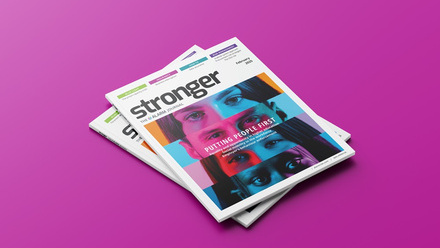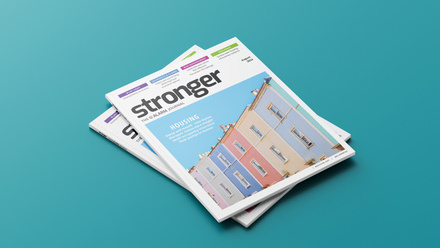This has brought an increased level of scrutiny to institutions, requiring them to demonstrate ‘value for money’ and quality of education.
In advance of the start of another academic year of HE in pandemic times, universities still have to respond to Government changes and requirements, as well as increasing digitalisation of learning. In the past 18 months student demands on institutions have been greater than ever and look to continue.
Once HE was essentially free and the HE market was less competitive, but as individuals now pay for their education the on-campus experience is important and expensive, and students want assurance they are receiving value for money and the very best from their chosen institutions.
For institutions this is difficult to manage. Universities are businesses and run on a profit and loss basis. Institutions have to make sure they don’t over promise, and student expectations need to be managed.
Students can sometimes expect to achieve a good degree, regardless of their capabilities or the work they put into the course. They could hold a view: “you accepted me onto this course, you felt me capable of achieving the qualification, but I haven’t – whose fault is this?” Institutions need to manage this risk by thinking defensibly and protecting their position, their reputation and their brand.
A common student grievance is that, although they accept their university experience had to change during the pandemic, they do not see the justification for paying tuition and/or accommodation fees. This may have been fuelled by recent comments from the Secretary of State for Education, Gavin Williamson, not only indicating his preference for a return to face-to-face teaching, but that if universities are not delivering what students expect, full fees should not be charged.
Many students were unable to use their accommodation for many months or access the learning they expected but were still charged. Also online tuition may seem less expensive to provide than face-to-face teaching.
Students will have missed work placements, which increase employability. The same point can be made in relation to practical courses, such as those with an engineering or creative focus.
Practical sessions have been difficult to stage with appropriate social distancing, but being able to demonstrate practical skills, is an intrinsic part of some qualifications, and is likely to be valued by future employers. This could have a detrimental effect on the ability of a university to perform research and attract funding and staff.
Universities should:
- Be very clear about the service they are offering the student for the fee payable. For example, the amount of teaching hours and one-to-one opportunities.
- Have a strategy to manage student expectations. This should be practised by all university departments, including admissions, marketing and faculty offices.
- Ensure there is precise and ongoing record keeping of student performance throughout their course.
- Ensure any complaints or discussions about progress and performance are recorded and kept.
- Record the reason behind certain decisions, and the timing of those decisions.
Students are now more prepared than ever to complain to the Office of the Independent Adjudicator for Higher Education (OIAHE) and/or claim against institutions, essentially for breach of contract. This can take several forms, including:
- Poor academic judgement by staff (‘I should have been awarded a higher degree classification’).
- The course was not what was advertised (‘The open day and web page formed part of the inducement to attend the institution and the experience fell short of what was promised’).
As well as dissatisfaction regarding the extent and quality of pastoral support; the quality and quantity of teaching can also be a flash point, particularly for courses where there is a substantial practical element.
These types of disputes can morph into more nuanced claims, where a student alleges, for example, that their course did not cover the exam questions, or that supervision of a dissertation was wrong, scuppering their chance of a good mark.
In addition to the potential cost of such complaints and disputes, there is a detrimental impact on management time and staff wellbeing. Think defensibly and document all aspects of a student’s journey through an institution. Ensure accurate and verifiable information is provided about courses.
The pandemic is likely to lead to more student disputes. The response to the pandemic varied from institution to institution. These were unprecedented times for everyone and there should be considerable Court sympathy for the initial pandemic period.
An institution can only be criticised for something within its control. The lockdowns and suspension of accommodation and face-to-face teaching were not decisions imposed on universities. However, the speed and extent of measures taken in response to the pandemic is likely to be scrutinised.





